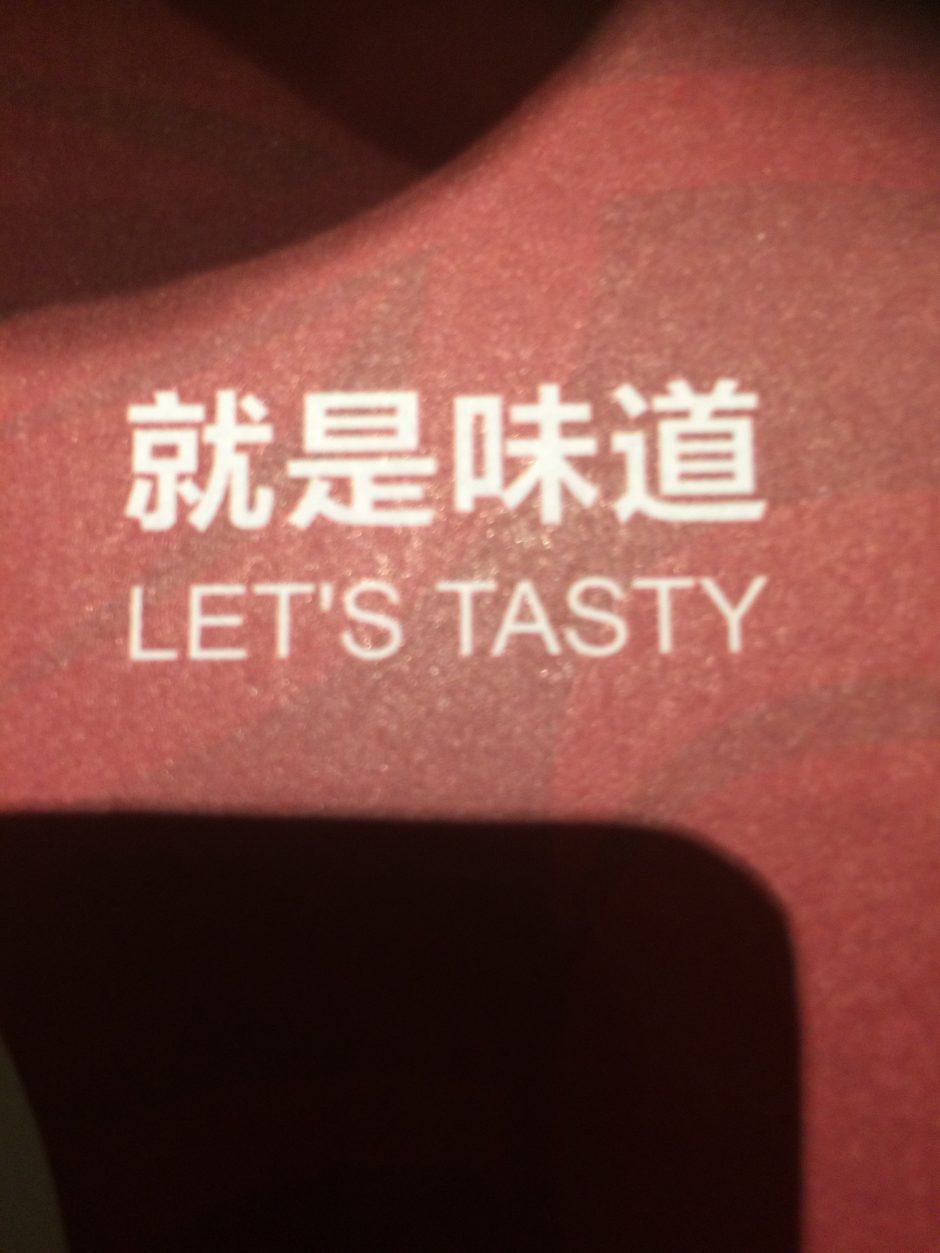On Smokeflowers and Hawaiian Pizza
by David Musgrave
A little while ago I returned from three months living in Beijing and found my world subtly changed. I’d gone there with the intention of continuing my study of Mandarin, but in a more intensive fashion than hitherto, and succeeded in that aim to the extent that maybe for one whole month I didn’t have a conversation in English with anyone at all, apart from writing emails. This of course does not mean that interesting conversations in English were replaced with interesting conversations in Mandarin: on the contrary, most of the time I felt like a complete moron, the high-point (or low-point, depending on your point of view) being when I was completely misunderstood ordering a Hawaiian pizza in a bar called The Pink Elephant in Chaoyang District. I explained that I was doing so in memory of Sam Panopoulos, the guy who claimed to have invented the Hawaiian pizza in Canada some time after 1954, when he emigrated from Greece with his two brothers, and whose death aged 83 was reported on that same day, 10th of June. The waiter took my order and disappeared, returning a little while later with the manager, who wanted to know if I really wanted four large pizzas for takeaway for a Canadian friend; it took a little while to sort that one out.
Miscommunication notwithstanding, after returning to Australia my life was divided into before and after Beijing: things I had done, read or seen before going to Beijing seemed as if they belonged to another life, if I could remember them at all. Being back in Australia felt like a cold diminution of the life I’d led in the previous three months: it was home, but miserably unaffordable in some important ways, weirdly empty (I could walk down my street without seeing another soul) and English had an unfamiliar opacity about it. The subtle change, though, was more to do with poetry. Part of the immersion in Mandarin was translating a poem a day by the T’ang dynasty poet Li Bai. At the end of each Mandarin class, my teacher would go over my translation with me and explain phrases or words which were opaque, or explain a cultural reference which could not be understood by someone like me. It was a very good way of reinforcing tones and increasing knowledge of characters, but what was most important for me was the encounter with a poetry that had a poetics which, on the one hand seemed familiar (parallelism, the ballad-like pattern of end-word sounds in five-character truncated verse) but was at the same time completely foreign in its linguistic compression and its unfamiliar syntax. What struck me, though, was how clear the poems were and how there was a strong sense, despite the massive changes that have occurred since the T’ang (618-907), of some degree of continuity with the present. My favourite example of this was Li Bai’s poem ‘Seeing Meng Haoran Off at Yellow Crane Tower’, the second line of which I had translated as ‘he goes through smoke-flowers in March down to Yangzhou’. Most translators seem to opt for simplicity: Vikram Seth has it as ‘To Yangzhou in the mists and flowers of Spring he goes’, while Selwyn Pritchard has it as ‘Third Moon’s mists and flowers are all around’ (his translation is a bit freer) whereas Xu Yuanchong’s flowery, free and archaic ‘For River Town green with willows and red with flowers’ seems to bear little relation to the original. Of course, I was mistaken with my ‘literal’ translation: the ‘yanhua’ of ‘smoke-flower’ means ‘a lovely spring scene’, or possibly a red-light district or fireworks. My teacher did allow the possibility that it could have been referring to the thick white fluff given off by the plane trees and poplars around Beijing in spring, and which are today called ‘yangxu’ or ‘poplar cotton wadding’, and which are so thick in the air that for a couple of weeks anyone with any sense wears a facemask to avoid choking to death on it. I didn’t, but I knew how to keep my mouth shut. But what I took away from this poem, which for years I had had hanging in my dining room on a calligraphic scroll, was that the apparent precision and economy of Li Bai’s lines were difficult, if not impossible to achieve in English. The subtle change which I noted at the beginning of this blog was a dissatisfaction with the limitations of some aspects of some English poetics when viewed through a Mandarin-tinted lens. This is not to say that we should return to Pound’s failed, but highly influential experiments with the ideogrammatic method, or to the mid-twentieth century American take on Chinese poetry (think Gary Snyder); rather, it made me think about how poetry in English could approach the condition of a Li Bai, not in the sense of imagistic compression, but in terms of a suggestive, polysemous concision. But this was only one aspect of reading poetry in Beijing: I met a few contemporary Chinese poets; their work bears little relation to Li Bai, and I’ll talk about them in another blog.

